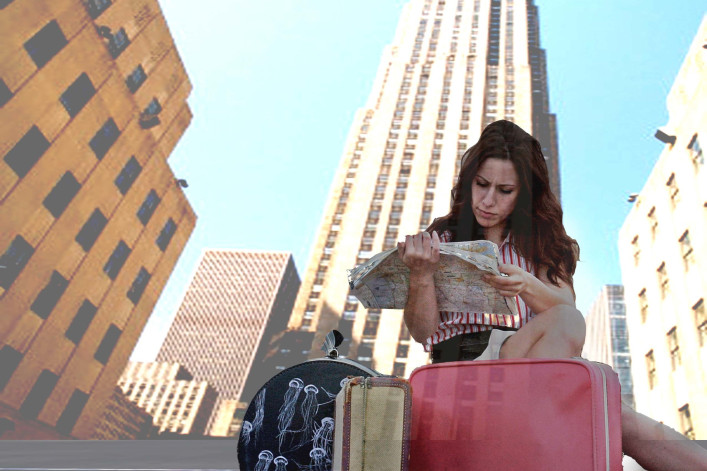Rental Rookie: Baby, it's cold inside

While heat and hot water might sound like a luxury in warmer parts of the country, it’s a necessity in New York City. I was lucky because my problem was the opposite – my apartment was always scalding hot. Some of my friends were not so lucky.
Not having hot water will make you do crazy things, like subwaying several stops to a friend’s apartment that has hot water or showering at the gym, as a couple of my friends did. And then there's my boyfriend, who lives in an apartment he recently found out was zoned for commercial use only. He was the first tenant there, and after more moved in, it turned out that the building’s tiny hot water tank couldn't support the hot-water needs of the building. For the past eight weeks he has been taking freezing cold showers in an apartment with no heat before taking a chilly walk to the subway.
(Of course, there’s always the option of not showering, as my roommate and I did when our hot water was out for a couple days, but you can only rely on that for so long before people begin to tell you something – and then stop hanging out with you.)
As for the legalities, heat must be turned on from October 1 through May 31. It must be above 68 degrees in your apartment when the outside temperature falls below 55 degrees between 6 AM and 10 PM; between 10 p.m. and 6 a.m., it must least 55 degrees inside when the outside temperature falls below 40 degrees. However, many landlords keep it hotter than the minimum so they don’t have to deal with that many complaints, hence my own personal sweatbox.
Water-wise, the law says you must have access to hot water at all times of the day. It must be at least 120 degrees at the tap constantly or if there is an anti-scald valve (normally in your tub or shower), it must be at least 110 degrees. You probably won’t stand there at the sink with a thermometer, but if there is a big discrepancy, call 311 if you have a big problem. Know that it can take a while because the Department of Housing Preservation and Development (HPD) will try to negotiate with your landlord first, then call you back and if changes are not made, finally send someone to inspect the problem normally within 48 hours of the problem. If they can’t reach your landlord, HPD will use their own staff to fix the problem – but they don’t lay out a time frame for how long it will take.
A proposed law called The HEAT Act (Heat Enforcement for All Tenants), would establish fines of up to $1,000 per unit, per day for repeat offenders, but it’s still in the petition stage.
As for some other tips to stay warm, it may be old fashioned, but if you have hot water, slipping a hot water bottle under the sheets by your feet can help make things warmer.
You could also fork over the cash for a space heater. Keep it at least 3 feet from curtains, upholstery or other combustible materials, turn it off when you're asleep or out of the room, and buy one that shuts off automatically if it tips over. For some other considerations and specific recommendations, check out this round-up on Slate.com.
Next up on Rental Rookie: How to care for a dog in a NYC apartment
Michelle Castillo moved to Manhattan last fall to attend Columbia University's Journalism School. She has covered arts and entertainment for The Los Angeles Times, Billboard.com, Hollywood Reporter, MSNBC.com and EW.com, and she currently writes about geek culture for Time.com's Techland. Rental Rookie is a twice-monthly column chronicling her first year as a renter in NYC.






















